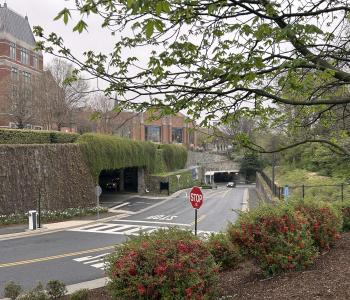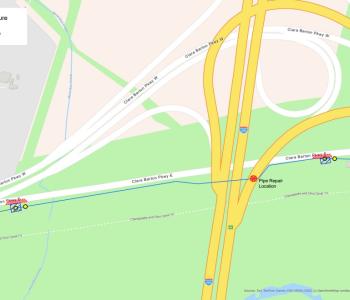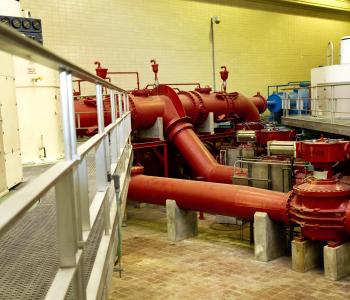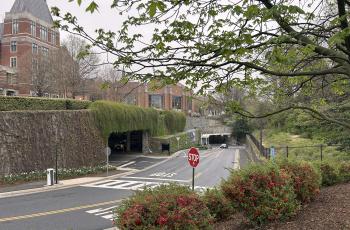WASA Schedules Hearing for Lead Pipe Replacement Program
The District of Columbia Water and Sewer Authority (WASA) will host a formal public hearing on its review of the Lead Service Removal (LSR) Program on Thursday, May 1, 2008. The announcement was made by WASA Chairman Robin B. Martin during testimony today at a budget hearing before the Council Committee on Public Works and the Environment. WASAs May 1 public hearing will be held from 6:30 pm to 8:30 pm at the Council of Governments Office, 777 North Capitol Street, NE (first floor training room).
The goal of the current LSR program is to remove all 35,000 known public lead water service lines in the District by 2016 at a cost of more than $400 million. The service line is the pipe that brings water from the main in the street to the home, and WASA has removed more than 14,600 lines so far in public space.
The LSR program is one of several projects that we are evaluating in the context of other immediate and longer-term infrastructure needs, Martin explained. The aggressive LSR replacement program began in 2004 in response to elevated lead levels found in tap water at many District homes. For the last three years, following a change in water chemistry, tap water in the District has met federal limits for lead and is in compliance with the Safe Drinking Water Act regulations.
WASA is hosting a series of community meetings and providing information on its website (www.dcwasa.com) to educate the public and invite discussion on District drinking water quality, the status of the LSR program and whether to continue or modify the aggressive pace of the program.
Martins statement followed testimony from a citizens panel that addressed the Committee with concerns about drinking water quality and the potential impact of partial (public portion only) lead service line replacements which may temporarily raise tap water lead levels. In response, Martin explained that the purpose of the program review is to analyze information from all sources, including the public, before deciding if and how the pace of the current program should be modified.
Partial replacement may temporarily increase tap water lead levels for a few weeks, so WASA provides customers with information (e.g. brochures, letters, door-hangers) on how to minimize potential exposure for the period after the replacement has been completed.
We are providing a safe product. However, we will analyze all information available and determine the best course to take in making a recommendation to the Board, WASA General Manager Jerry N. Johnson told the Committee. The WASAs staff recommendation will follow the public hearing this spring.
###







